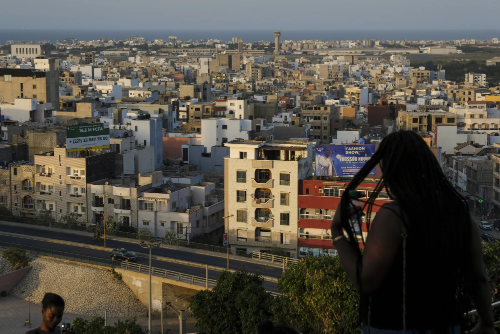Senegal Plans $537m Bonds Issue to Plug Budget Gap

TLDR
- Senegal is preparing a CFA 300 billion ($537 million) bond sale on the West African Monetary Union (WAMU) market this month
- The deal will be split into four tranches with maturities of 3, 5, 7 and 10 years, offering yields between 6.40% and 6.95%
- The new fundraising comes as Senegal leans heavily on regional markets to fill a widening deficit
Senegal is preparing a CFA 300 billion ($537 million) bond sale on the West African Monetary Union (WAMU) market this month, according to people familiar with the matter cited by Jeune Afrique.
The deal will be split into four tranches with maturities of 3, 5, 7 and 10 years, offering yields between 6.40% and 6.95%. It would mark Dakar’s third issue in 2025, after raising CFA 405 billion in April and CFA 360 billion in July. The finance ministry declined to comment, citing market rules.
The new fundraising comes as Senegal leans heavily on regional markets to fill a widening deficit. Between April and July, it raised more than CFA 1 trillion, compared with just CFA 260 billion for all of 2024. In the first half of 2025, it also tapped the WAEMU public securities market for CFA 1.26 trillion.
The push follows a debt revision that lifted the debt-to-GDP ratio to over 110% after auditors uncovered $7 billion in hidden liabilities from the previous administration. The IMF has frozen a $1.8 billion credit line pending reforms.
Daba is Africa's leading investment platform for private and public markets. Download here
Key Takeaways
Senegal’s return to the regional bond market highlights how WAMU has become the country’s primary financing backstop amid strained relations with international lenders. Regional investors—mainly banks and pension funds—have absorbed over CFA 2.2 trillion of Senegal’s borrowing in 2025 alone, underscoring both their appetite and the government’s reliance. But this dependence carries risks. Yields are creeping higher as liquidity in the WAEMU banking system tightens, while Dakar’s repeated issuance raises questions over crowding out private borrowers. Banks already prefer sovereign paper over SME lending, and with Senegal tapping ever larger sums, the imbalance could worsen. The IMF is pushing Dakar to audit arrears, centralize debt data, and consolidate public finances under a Single Treasury Account. Progress on these reforms will determine whether the IMF unblocks fresh support and whether international bond markets reopen. Until then, regional creditors remain the only lifeline. The stakes are high: if Senegal stabilises its debt trajectory, its reliance on WAMU could buy breathing space. If not, the growing weight of regional borrowing may amplify rather than relieve fiscal pressures.

Next Frontier
Stay up to date on major news and events in African markets. Delivered weekly.
Pulse54
UDeep-dives into what’s old and new in Africa’s investment landscape. Delivered twice monthly.
Events
Sign up to stay informed about our regular webinars, product launches, and exhibitions.




